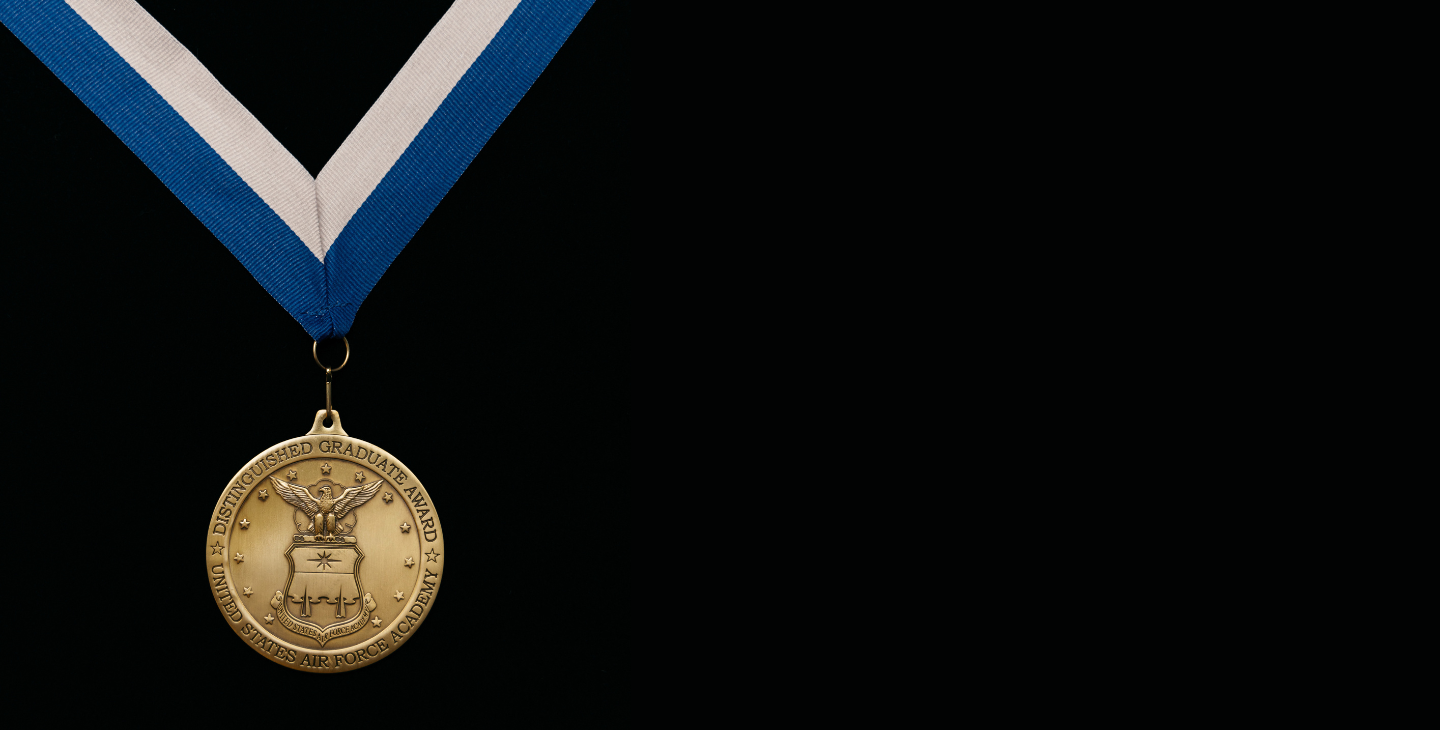Checkpoints:
Gen. (Ret.) William J. “Bill” Begert ’68
Distinguished Graduate Award Recipient
Gen. (Ret.) William J. “Bill” Begert ’68
From his home along the shores of Sabbathday Lake in southern Maine, Gen. (Ret.) William “Bill” Begert ’68 reflects on the circular nature of his life. “I was born about 12 miles from here, in Lewiston, Maine,” Gen. Begert says. “Every summer we came to this lake. My parents rented a cottage about 300 yards from here, and it was $10 a week. That’s where I spent the summers of my childhood.” It’s a wet and unseasonably cool June day; a birdfeeder on the cottage’s deck is visited by brightly colored woodpeckers and orioles while Gen. Begert shares that he left Lewiston when he was a boy and attended elementary school in Berlin, New Hampshire. His father worked in theater management and returned the family to Lewiston in time for the general to graduate from high school in his hometown. “My last two years were at Lewiston High School, and that’s where I started to play football,” Gen. Begert says. “I had no football experience prior to that, but I ended up making the team. And strangely enough, I think one of the reasons I got into the Academy was because I had attended four high schools, but I ended up being president of my senior class, which I think probably helped me.”
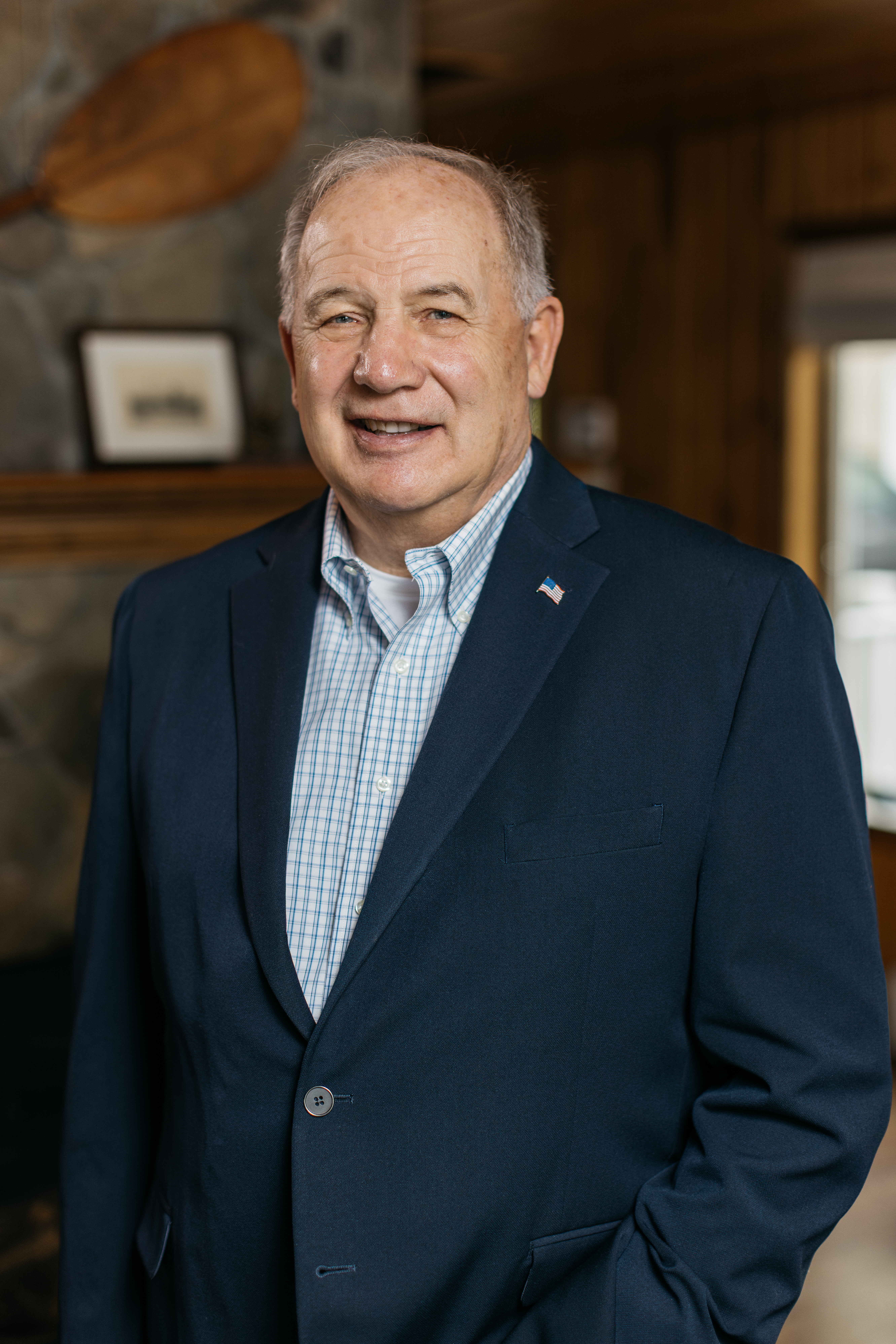
THE USAFA LIFE
Like so many men making up the Greatest Generation, Gen. Begert’s father served in the U.S. Army during World War II, and his uncles served in the Army and Navy. “If you were a young, able-bodied person, you went to war,” Gen. Begert says. “But only my Uncle Carl stayed in after World War II. So I really did not have a strong military background other than World War II stories growing up.” It was, in fact, a high school friend who first introduced the idea of joining the military. She told him about a service academy called … West Point. “My brother, who’s three years older, was going to Boston University, which is very expensive, and was putting a stress on the family,” Gen. Begert says. “And so West Point seemed like a good alternative. I had been accepted, in fact, at Notre Dame, and we were waiting to hear about a scholarship. But when I went into my local senator’s office to ask about West Point, they said, ‘We don’t have any appointments to West Point. We do have one to the Air Force Academy.’ That’s the first time I had heard about the Air Force Academy, and so I applied, was nominated by my senator and got the appointment. So that’s it; there weren’t stars in my eyes or any thinking about flying until I got to the Academy, and then I fell in love with flying.”
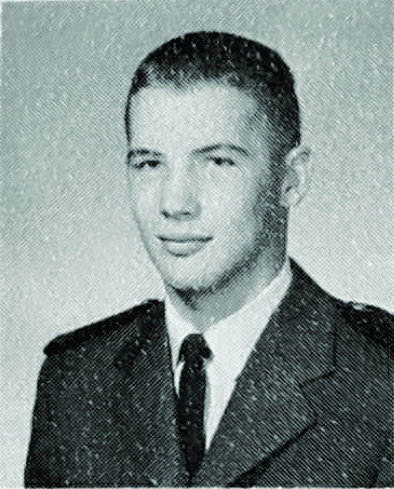
To one day fly, Gen. Begert would first have to board a plane. That happened when he traveled to Colorado to attend the Academy. He admits he didn’t know much about what to expect for the next four years. “It was pretty much a surprise. I was in good shape, which was helpful — I played a lot of high school sports,” he says, adding he competed in baseball, basketball and football. “Inprocessing was interesting; I don’t remember much of that except that the band members were terrific. And I remember taking the oath — that was probably the most memorable thing that day.”
Once sworn in, Gen. Begert says he didn’t have any specific career goals. “I was 18 years old, and I was very much my age in terms of maturity, so I didn’t have any grand scheme of what I wanted to do,” he says. “I just wanted to pass my next class, get to the next semester and learn about the Air Force.” Gen. Begert, an international affairs major, says he had hit his stride by the summer following his four-degree year. “I pretty much understood more of what I was getting myself into and what life was going to be like,” he says, adding he developed an interest in boxing and competed in the Wing Open three years in a row. “My sophomore year, I made it to the finals, but I lost a split decision to a classmate,” he says. “My junior year, I ended up breaking my hand on the side of a guy’s head. I won that fight, but one-handed, so I had a cast on my hand for the Wing Open that year. And then, as a senior, I was in the Wing Open and lost by split decision in the semifinal.” Overall, the general says he was a “good cadet” and never marched a tour. “Sometimes that was pure luck that I didn’t get caught, of course, but I did pretty well,” he says.
Gen. Begert made the Commandant’s List and Superintendent’s List occasionally, and at the same time admits academics challenged him. He says, while in high school, his principal congratulated him on his Academy appointment but told Gen. Begert he would never graduate because the high school’s math program wasn’t great — and Gen. Begert hadn’t excelled in math. “His wife was my geometry teacher, so he knew what he was talking about,” Gen. Begert says. The principal’s slight was prescient — Gen. Begert learned he had an F in a math course at mid-semester during fall semester of his four-degree year. “I went up to the Math Department and knocked on a random door, and there was a major sitting in there. He said, ‘What can I do for you, cadet?’ And I said, ‘Well, I’m flunking math, and I need help if I’m going to stay here.’ He looked at my name tag, and he said, ‘Begert. Begert. I flew in World War II with a Carl Begert.’ I said, ‘That’s my Uncle Carl. He just retired from the Air Force, and he’s up in Washington and doing great.’ And he said, ‘Come in here and close the door. I’m going to teach you math.’” Gen. Begert would also go on to make the Superintendent’s List and, overall, he says his USAFA tenure turned out all right — especially, he says, his two-degree year.
“On Nov. 11, 1966, I had a blind date with a girl from Colorado State University who one of my classmates fixed me up with. We’re on our 57th year of marriage,” he says of his wife, Jody.
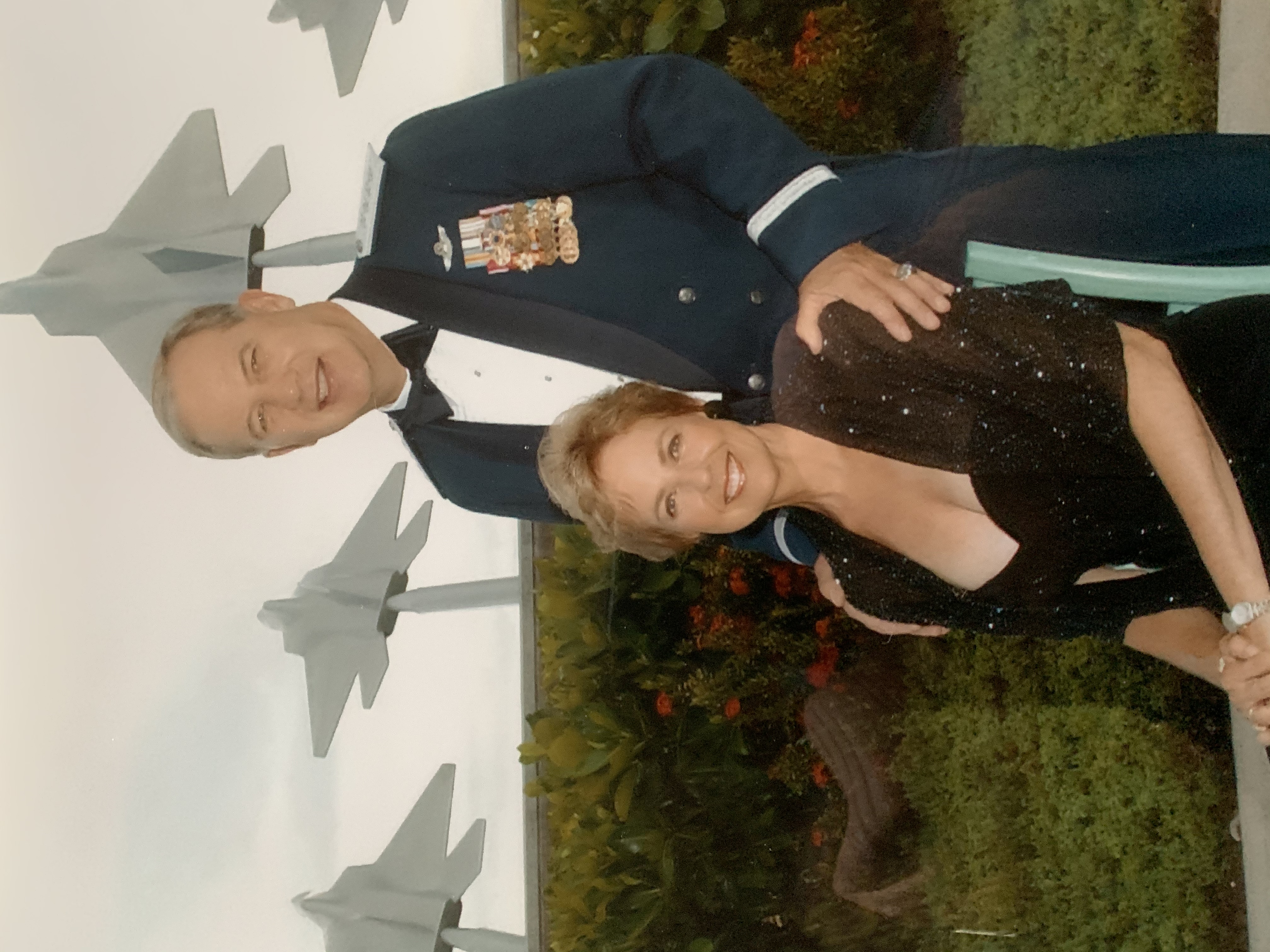
OFF TO VIETNAM
Gen. Begert commissioned in 1968 and
attended undergraduate pilot training
at Randolph Air Force Base outside San
Antonio, Texas. Like most of his class, he
knew he would be headed to Vietnam.
After his first operational tour in C-141s,
he was assigned to fly O-2As as a forward
air controller. His Southeast Asia tour
began in January 1972.
“That ended up being a very exciting
year,” he says. “Early in my tour, I was
mainly flying missions over the Ho Chi
Minh Trail in Cambodia and in Laos until Easter Sunday. That April, the North
Vietnamese attacked with conventional
forces — the first time during the war.
They brought across tanks, artillery and
surface-to-air missiles in a three-pronged
invasion. It changed everything for us.”
Then-Capt. Begert flew more than
300 combat missions totaling nearly 900
hours. His squadron started with 80 aircraft and lost 22 during his tour.
“We took some pretty heavy casualties,”
he says. “I had squadronmates who
became POWs, became missing in action
or were killed outright, so it was pretty
intense. It was great flying, but getting
shot at every day is not something that
you want to do for the rest of your life.”
Gen. Begert says the training he received
at the Academy was most helpful during
his combat tour. Among the decorations
he received were two Distinguished Flying Crosses and 12 Air Medals.
He shares the story behind one DFC.
Following the Easter invasion, an
EB-66 Air Force aircraft had been shot down over enemy territory. One crew
member survived.
“We never left anybody behind, and
so we worked for 12 days to get him
out,” Gen. Begert says. “We lost several
airplanes in the process, and 12 of our
guys were killed trying to get him out.”
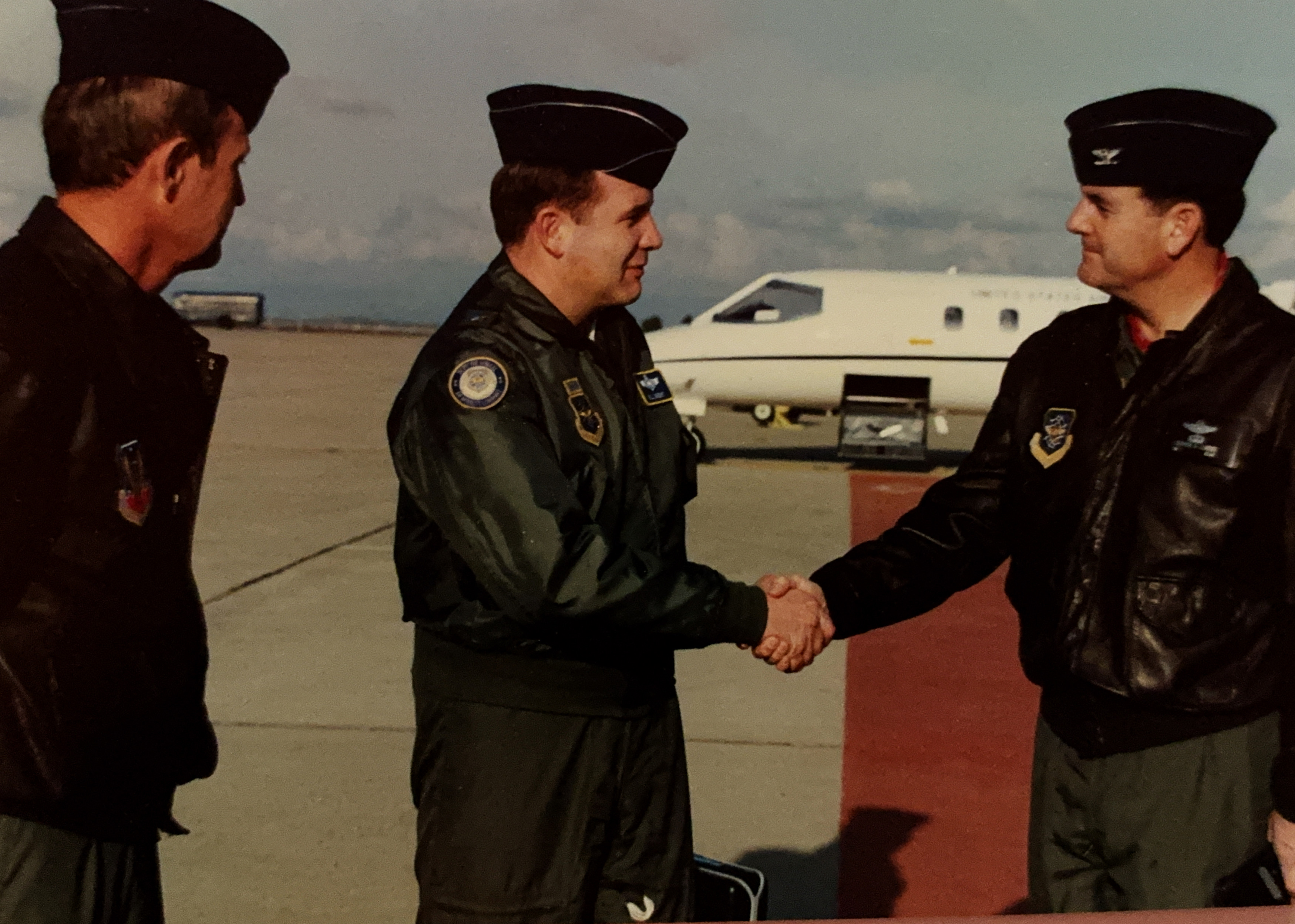
Gen. Begert says he flew multiple missions during that time, including dropping CS gas near a downed pilot to keep enemy forces away. “It was a bad weather day [for flying], much like this,” he says, pointing to gray skies outside his window. “Very low ceilings — 500, 700 feet. I was down in the weeds and ended up talking in two F-4s. They carried the CS powder in canisters, like napalm, and [the gas] landed right on top of [the downed pilot]. We didn’t hear from him for about two days, so I thought the canisters might have killed him, but he was just so sick from the CS powder that he couldn’t get on the radio.” A Navy SEAL, according to Gen. Begert, eventually extracted the downed pilot under the cover of night. That SEAL would earn the Medal of Honor for his efforts.
‘AN INTERESTING TIME’
In 1973, following his tour in Vietnam, Gen. Begert says he tried to stay in either the forward air control business or move over to fighters. “The Air Force said no,” he says. “And I said, ‘What about bombers?’ They said no. And I said, ‘Well, I’ll go back to the C-141.’ They said no. So I ended up going back to Dover Air Force Base in Delaware and flew C-5s for four years.” Then, in 1977, Gen. Begert returned to the Academy, this time as a military studies instructor and air officer commanding. He says he enjoyed returning to his alma mater, adding that it was an opportunity to positively affect young peoples’ careers. “It was an interesting time because it was when women first came in,” he says. “I knew the first class of women very well — in fact, the first three classes. I followed them through their Air Force careers.”
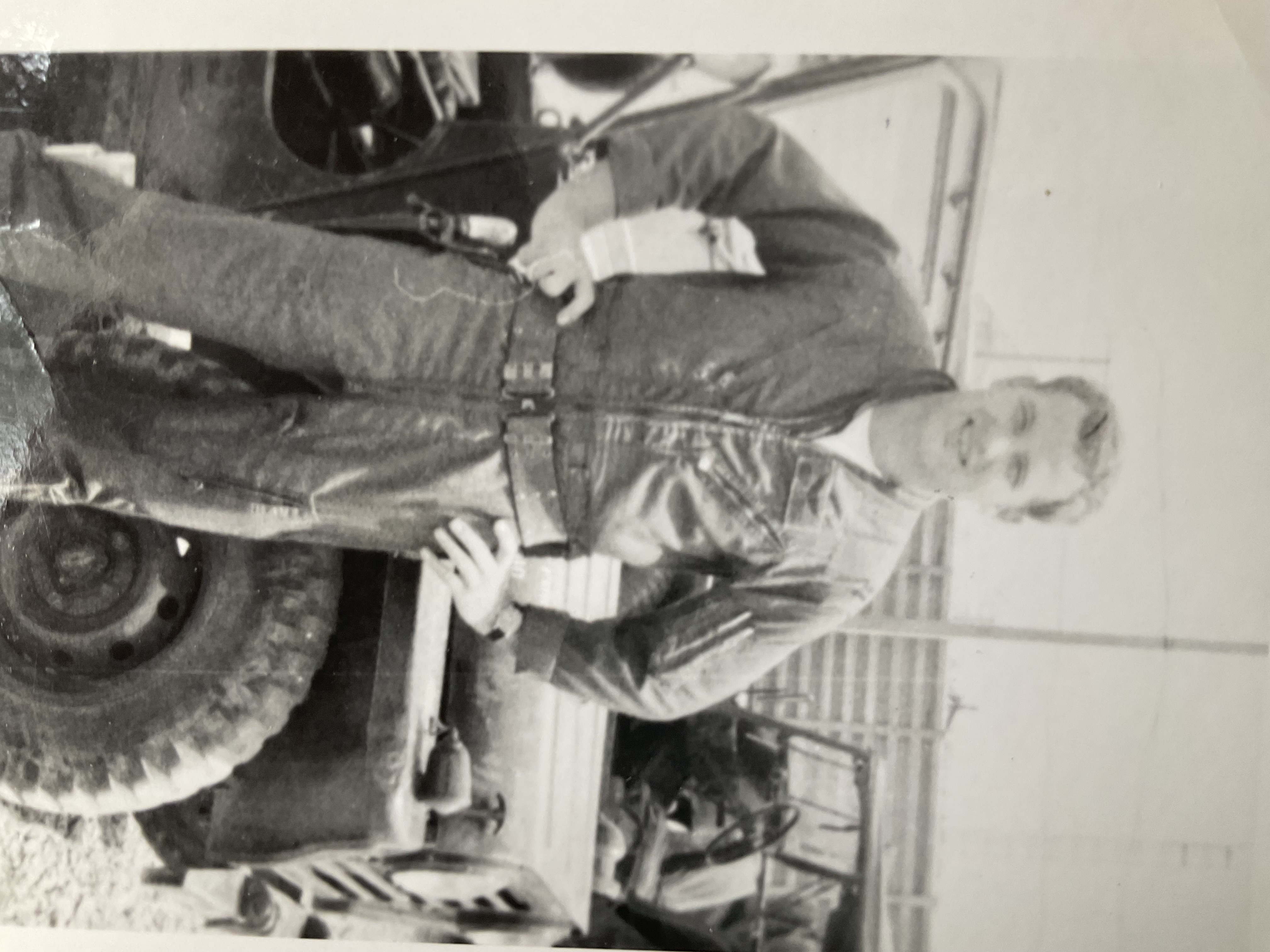
Following his second stint at the Academy, Gen. Begert attended Air Command and Staff College and again flew C-5s and became a squadron commander. He then left for National War College in 1984 and remained in Washington, D.C., for a Pentagon assignment until 1988. Gen. Begert was then assigned to Dover AFB to again fly C-5s, this time as a vice wing commander and then wing commander. Gen. Begert says, all these moves later, that timing played a big part in his advancement. “I was very fortunate in my career that when I was operational and flying, something was happening in the world,” Gen. Begert says, adding he gained valuable operational experience both during the invasion of Panama in 1989 and during Operation Desert Storm two years later. Gen. Begert earned his first star in 1992 upon taking the role of chief of staff at U.S. Transportation Command. Then, as a three-star, Gen. Begert served in Europe as the vice commander. While in Europe, the Kosovo War began. “As the vice commander in Europe, I learned a lot,” Gen. Begert says. “[Gen.] John Jumper was the commander. A guy by the name of Lt. Gen. Mike Short [’65), the three-star down in Aviano, was running the war. It gave me ‘cred’ as a senior officer for not just the time I’d spent in Vietnam in air combat, but now modern air combat in Kosovo.
From Europe, I went to Washington to be the assistant vice chief of staff — the No. 3 guy in the Air Staff — and that’s when I got my fourth star and left for Hawaii.” Gen. Begert served at Hickam AFB as commander of Pacific Air Forces from 2001 until his retirement in 2004. “For a four-star, it’s the best job in the Air Force,” he says. “Most everybody will tell you that. The mission’s great; I did a lot of international travel. I took 75 trips around the Pacific for work — building relationships, working with allies, training with allies, shaping all of that. And of course, we started to deal with China in a serious way when I was there.” The 9/11 attacks also occurred during this time, and Gen. Begert says he relied heavily on relationship-building skills to accomplish the mission of his command. “Relationships are important,” he says. “For example, we wanted to deploy bombers to Diego Garcia through the Pacific, and we had to help put a tanker bridge in place. I was able to pick up the phone and call the Singapore air chief and say, ‘Can we put tankers in Singapore?’ And he worked that out with his government, and then the same thing with Thailand.”
Looking back on his
military career, Gen.
Begert says, “I was very
fortunate to have a wife
that rolled with the
punches and brought
great stability to our
family. She ended up
getting a nursing degree
and worked during a
lot of our assignments.
She was one of the first
spouses ever to successfully work while I was a
squadron commander;
it was just not done in
those days. My boss didn’t appreciate it
at the time, but my boss’s boss did, and
so that saved me.”
Gen. Begert shares another story about
Jody, this one taking place over Martin
Luther King Jr. weekend in 2001.
“I lived at Andrews Air Force Base
and the red phone went off,” he says.
“I could see the chief of staff of the Air
Force [Gen. Mike Ryan ’65] calling.
I said, ‘Yes, sir,’ and he said, ‘Is Jody
there?’ I said, ‘Yes, sir.’ ‘Let me talk to
her.’ So I said, ‘Jody, the chief wants
to talk to you.’ He said, ‘Jody, I had
my monthly four-star call today, and
we all talked about who should go out
to PACAF, and they all voted for you,
and Bill can come along too.”
Gen. Begert says the role his family
played in his Air Force career “can’t be
overstated.”
“It was great to have two kids who
traveled well despite all the challenges. Being Air Force kids, if you ask
them where they’re from, they will say
Sabbathday Lake, just because this is
where they look forward to coming
every single year. We moved over 30
times, so this is really home.”
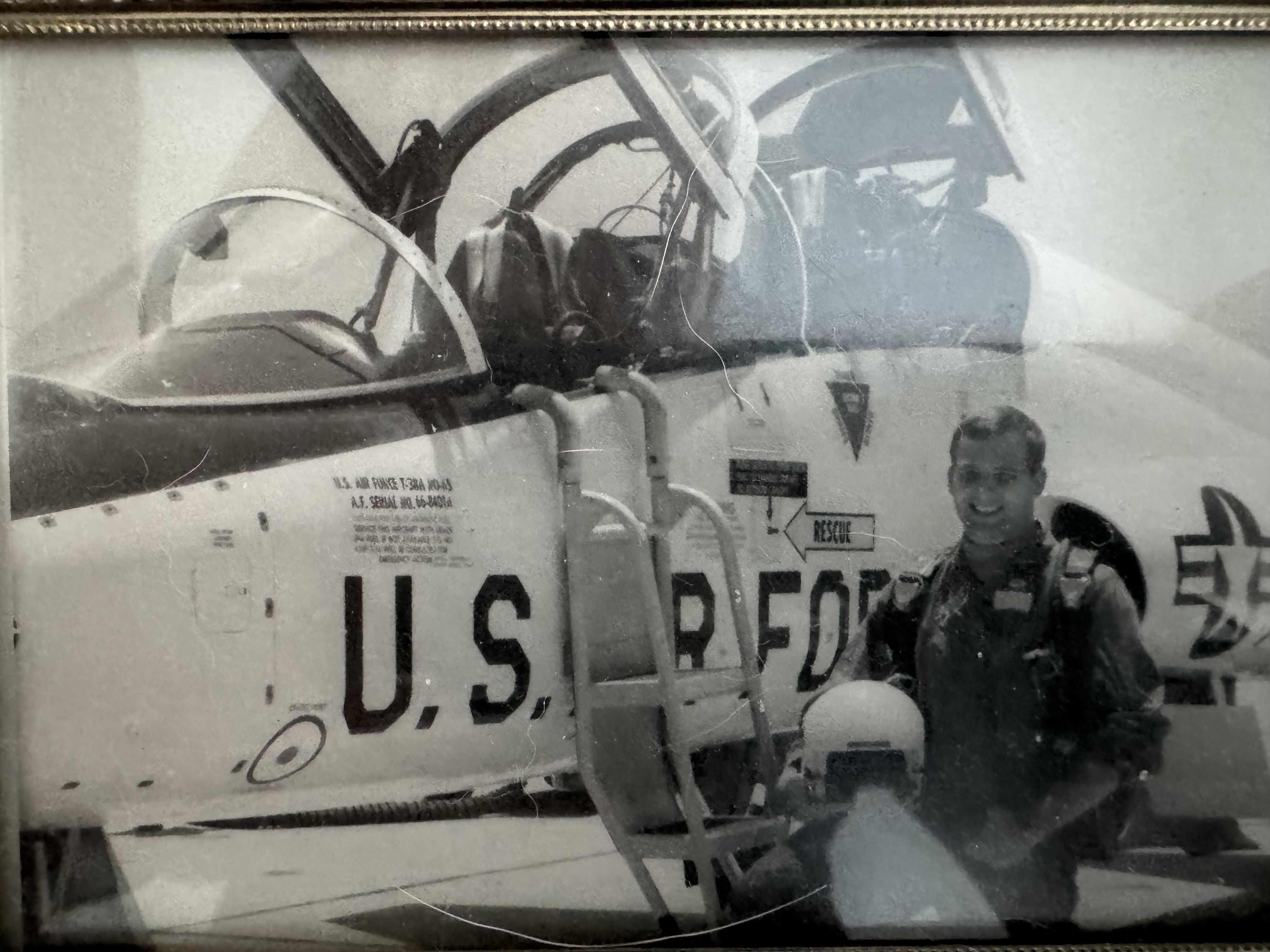
THE NEXT CHALLENGE
Gen. Begert retired from the Air Force in 2004 and sought advice from Gen. Ryan, the 16th chief of staff of the Air Force and a mentor from Gen. Begert’s active-duty days. “Mike recommended I take six months off; you don’t realize how tired you are. He said, ‘Just take six months off, chill, recharge your batteries. Don’t jump at the first offer.’” Gen. Begert took his mentor’s advice before landing at Pratt & Whitney as a vice president. “At the time, it was part of United Technologies Corporation,” he says. “I was in the military engines business, and it was a very easy transition, because it was like going back to a squadron where you knew everybody and had a bunch of people working for you.” Like on active duty, Gen. Begert traveled the world. “I went to 32 countries,” he says. “I thought that I was still serving, that I still had that passion to serve, and that I was fulfilling a role that was pretty important. I was going to do it for maybe four years. I ended up doing it for seven and a half years and then did consulting after that. I just retired from the consulting part, so I worked for Pratt almost 20 years.”
Gen. Begert says he felt he was still serving his nation in his new role, but leadership felt different as a civilian. “In civilian industry, they don’t teach leadership,” he says. “The military teaches leadership. It’s fundamental from Day 1. Industry doesn’t do that, especially if you’re working for an engineering company. Some engineers are good leaders and some of them are not. And so I found that there was a thirst for leadership that I was happy to fill.” Every month, Gen. Begert would lead a brown-bag seminar open to everyone. “I would teach them about the military, tell some war stories,” he says. “We’d talk about how our engines are working in the real world. It was almost always standing room only. And I’ve had people come up to me and say, ‘I’ve been working here for 22 years, and I didn’t know that.’ I enjoyed doing that.” Transitioning from military to civilian life wasn’t the only life change the general experienced in the days following his Air Force retirement. In 2005, Gen. Begert reconnected with a former Academy colleague and one-time group air officer commanding, Dr. Tom Eller ’61. “Tom called me up and asked if I’d be interested in joining the Falcon Foundation,” Gen. Begert recalls. “That was a year after I retired, and after a few years, I became a governing trustee, which gives you fiduciary responsibility. And then I became vice chairman, and then the chairman.
“I love the Falcon Foundation for what it does for young people. … They’re motivated enough that they’ll spend a year in a prep school to sharpen their math or English, and then they’re almost guaranteed a spot at the Academy the next year. So they take a year out from their lives to reach their dream of joining the Air Force as an Air Force Academy cadet. That’s very motivational. The Falcon Foundation helps to make dreams come true.” And Gen. Begert has maintained other meaningful connections with his alma mater. Just ask the cadet cyber competition team. “I’m on the gift committee for my class, and as we were coming up to our 50th reunion, we wanted a project that would help the Cadet Wing,” he says. “We ended up choosing the cyber team, and we were able to raise a whole bunch of money to endow their travel; because they’re a club, they’re not funded by the Air Force. We raised enough money to fund that in perpetuity.”
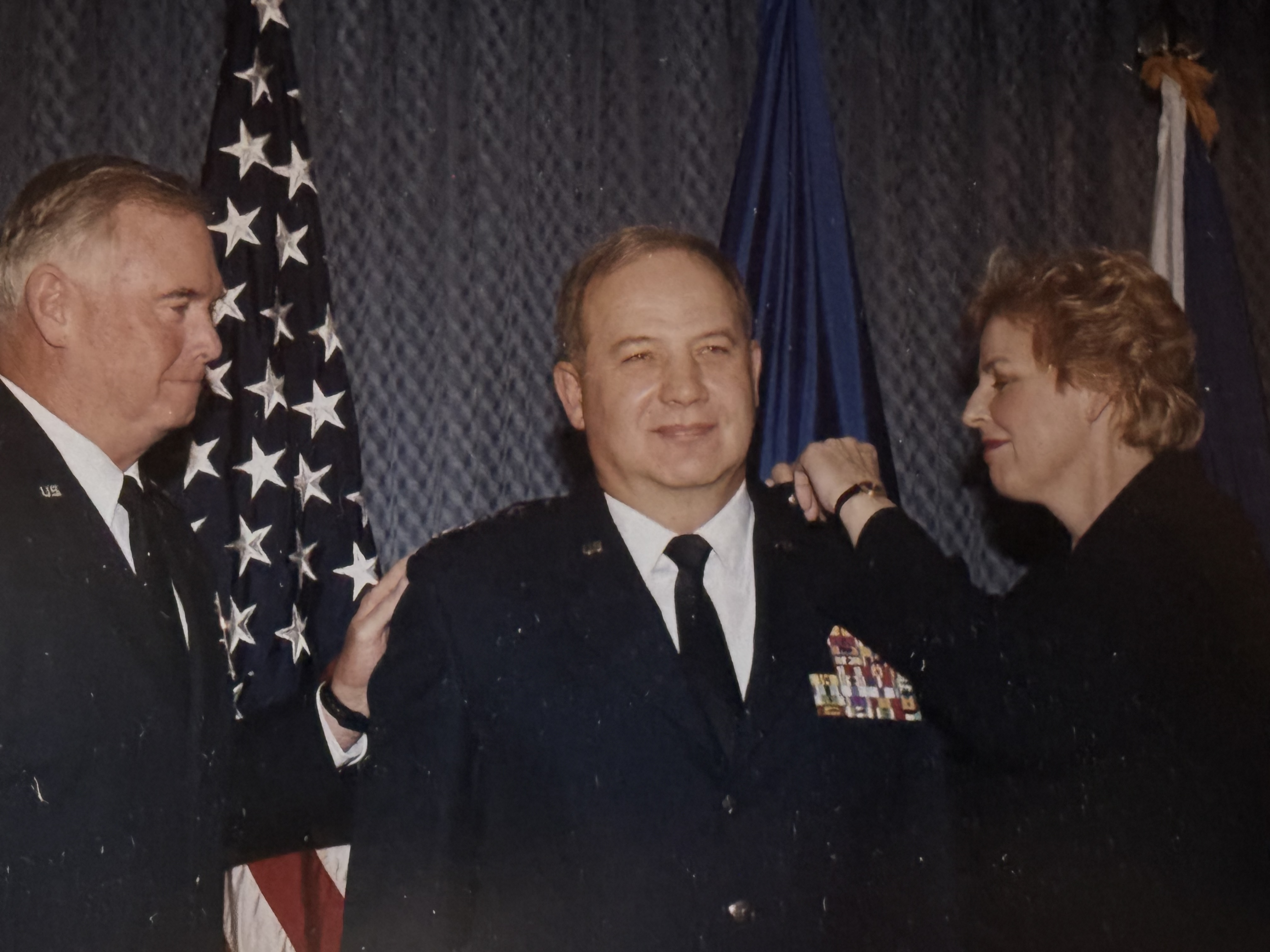
A WORD OF THANKS
Gen. Begert says the list of those he’d like to thank for nominating him for the Distinguished Graduate honor is long, but Gen. (Ret.) Steve Lorenz ’73, president of the Falcon Foundation, is among those at the top. “He told me a year or so ago that he would like to nominate me,” Gen. Begert says. “Then I found out the package was endorsed by [Gen. (Ret.) Ralph “Ed” Eberhart ’68], who’s a classmate of mine, and [Gen. (Ret.) Bill Looney ’72], who became the chairman of the Falcon Foundation after me. So when I was called by [Association & Foundation President and CEO Mark Hille ’97], it wasn’t a total surprise, but it was a very welcome one that I had made the cut. “I was by no means assuming that it would happen, but I was very gratified when it did happen, very humbled,” he continues. “Whatever success I have, I think back to my 12 classmates who died in combat who never had the opportunities that I did, never got to live the life that I did. So when I say humbling, I really mean that, because I try to keep it in context with those who have sacrificed everything.” Gen. Begert says he’ll continue his involvement with the Academy because he believes strongly in the Long Blue Line and the Academy’s mission. “It is enduring. It means life or death for our country, and the Air Force Academy produces young men and women who support that in a selfless way and are willing to give their all to make sure that happens,” he says. “So for me, continuing to be part of that is a very important part of my adult life. I know that I’m one of many who feel that way.”

